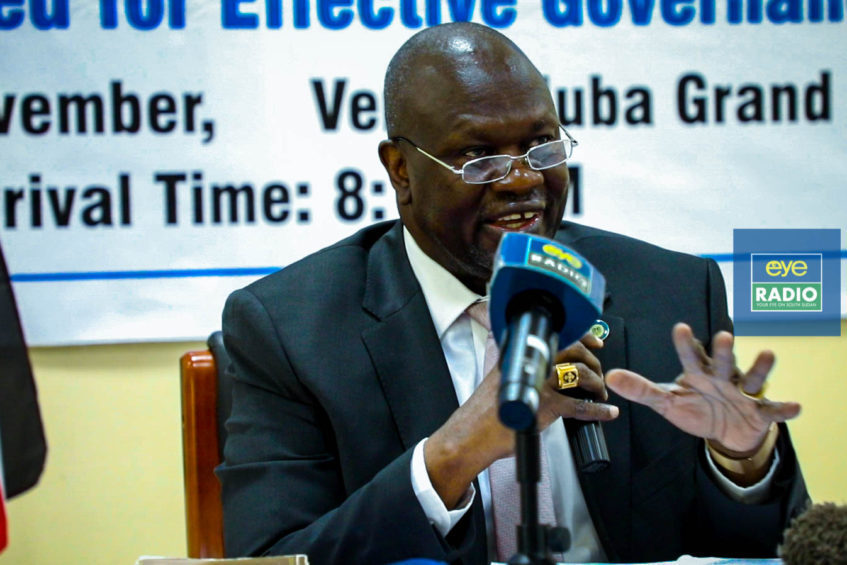
FVP, Dr Riek Machar addressing a workshop for the state's ministers of parliamentary affairs in Juba on Tuesday - Photo: Lou Nelson/Eye Radio | Nov. 16, 2021
The First Vice President has attributed the insufficient number of judges in the national judiciary to less pay and unattractive working conditions.
Dr. Riak Machar stated that qualified judges have left the judicial system because the country could not remunerate them enough.
He spoke during the launch of Judiciary Reforms mechanisms in Juba on Thursday.
“In our judiciary, a good number of judges have left. One reason could be low pay, the working conditions in the judiciary is not attractive to many,” said the first vice president.
Dr Riak, however, did not disclose how the government is working to address the matter.
A 2018 report by the African Center on Strategic Studies, indicates that the conflict has devastated South Sudan’s judicial institutions.
The country struggled with the militarization of private and public life, impunity, and personalized rule, resulting in the ultimate paralysis of constitutionalism and the rule of law, the report says.
Meanwhile, the First Vice President acknowledged that the most common legal mean of settling disputes is on the customary laws and courts.
“In this country, we also have a unique situation. Most of our mitigations are based on customary laws and customary courts. If you go to many parts of the country, the statutory courts do less,” Machar said.
According to him, the prevalence of customary laws in deciding disputes needs a redress to align resolution of cases in accordance to the constitution.
“The customary courts are the ones operating and, in our constitution, we say, we recognize the customs law which is something we must put into consideration.”
For his part, Chief Justice Chan Reech Madut says they have established plans to extend the gender-based violence court to other areas in the country.
Madut stated that the move will bolster the fight against gender related issues.
“We have introduced what we call gender-based violence court, it was not there before, and this has been recognized internationally as wonderful. This court is based in Juba but if the conditions permit, we are going to extend it beyond Juba because this violence based on gender, is everywhere.”
Established in 2020, the GBV Court in Juba has so far sent over 100 men to different prison terms for committing sex crimes.
Support Eye Radio, the first independent radio broadcaster of news, information & entertainment in South Sudan.
Make a monthly or a one off contribution.
Copyright 2024. All rights reserved. Eye Radio is a product of Eye Media Limited.